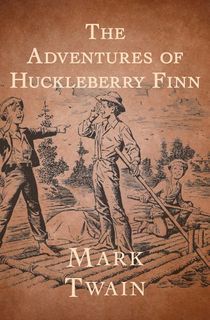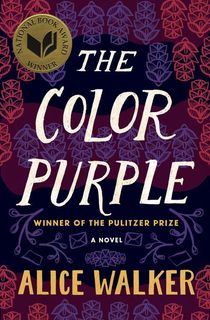Henry Ward Beecher once said that “A house without books is like a room without windows.” Whether you’re living in a small apartment or a sprawling family home, there’s always room for at least a few books.
But what books should you choose, if you’re putting together your home library for the first time? After all, if you only fill your house with books you’ve already read, you won’t have anything to do but read them again. Better to find the kinds of books that will provide the sorts of windows you might want to look out of.
Here are 20 books that no home library would be complete without.
Classic Books for Your Home Library
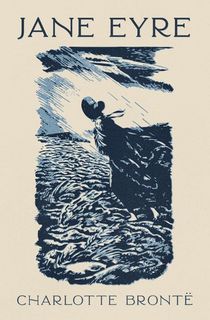
Jane Eyre
Part gothic novel, part romance, part bildungsroman, Jane Eyre caused a sensation and a controversy when it was first published in 1847 and today it is seen as an indisputable classic. Charlotte Bronte revolutionized prose with her intimate first-person narrator which contemporary critic George Henry Lewes said “reads like a page out of one’s own life.”
As such, Bronte has since been hailed as “the first historian of the private consciousness” and a forebear of such legendary writers as Virginia Woolf, James Joyce, and Marcel Proust, to name a few.
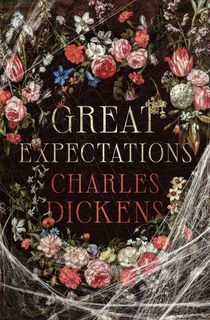
Great Expectations
Is a library even a library without at least one work by Charles Dickens? Perhaps no writer of prose fiction has ever been as synonymous with the form as Dickens, whose oeuvre includes a wealth of celebrated classics. Among these, Great Expectations is one of the greatest.
Featuring some of Dickens’ most iconic characters, including the tragic and grotesque Miss Havisham, Great Expectations trades in the kind of expansive narratives and wide-ranging themes that readers have come to expect from the author, and its characters and plot devices have entered inexorably into popular culture in a variety of ways.
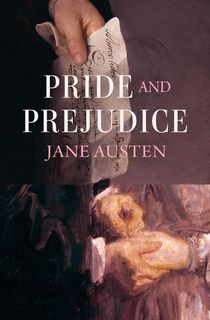
Pride and Prejudice
It is a truth universally acknowledged that a library must be in want of a copy of Pride and Prejudice.
Thanks in part to popular film adaptations and a 21st century renaissance that includes comic book versions and even a hit crossover featuring zombies that got a film adaptation of its own, Jane Austen’s classic novel of manners has perhaps never been more popular or more indispensable than it is today. Can your home library truly be complete without it?
The Adventures of Huckleberry Finn
The New York Times hailed Mark Twain as the “greatest humorist the United States has produced,” while no less a luminary than William Faulkner called him the “father of American literature.”
Born Samuel Langhorne Clemens, Twain’s novels and short stories, often set in the American South, have been beloved by readers since the turn of the 20th century. Among these, Adventures of Huckleberry Finn may be the most celebrated, and has frequently been hailed as the “Great American Novel” for its tale of adventure along the Mississippi River, its regionalism, and its use of vernacular language.
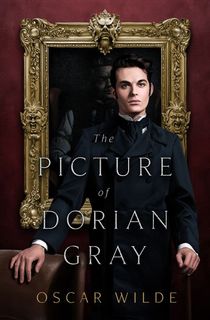
The Picture of Dorian Gray
From Penny Dreadful to League of Extraordinary Gentlemen – not to mention numerous more direct film adaptations – Oscar Wilde’s sole novel has left an indelible mark on the modern imagination.
And this story of an attractive and hedonistic man who sells his soul to remain young and beautiful while a portrait of him ages in his place and takes on the burden of his various sins remains as vivid and challenging as the day when parts of it were read aloud at Oscar Wilde’s trials for obscenity in 1895, where it was called a “perverted novel.” And, after all, doesn’t every library need at least one of those?
Popular Books for Your Home Library
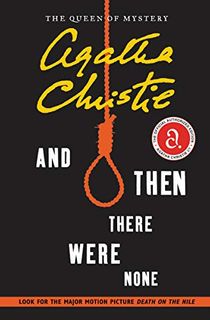
And Then There Were None
Agatha Christie has been called the “Queen of Crime,” and her best-selling (and perhaps best-beloved) book of all time is And Then There Were None, a classic of deduction and mystery which the author herself once described as her most difficult story to write.
Eight individuals – all seemingly strangers to one another – arrive on an isolated island, only to find that there is someone there who believes they are guilty, and will stop at nothing to punish them. The result is a book that has become one of the biggest bestsellers of all time and gone on to influence the structure of countless horror and suspense movies in the years since.

The Catcher in the Rye
Sooner or later, it seems that everybody reads Catcher in the Rye, J. D. Salinger’s classic tale of angst and alienation. Many of us read it in school, when we’re about the age of its protagonist and narrator, Holden Caulfield.
Whenever we read it, we find a controversial but often beloved book that has been called “the defining work on what it is like to be a teenager” by the BBC. Whether you identify with Holden Caulfield or loathe him, however, few books have had the impact on readers that Catcher in the Rye has managed over the years.

A Little Life
Winner of the Kirkus Prize and a finalist for the National Book Award and the Man Booker Prize, A Little Life is a “deeply moving […] portrait of the enduring grace of friendship” (NPR), which chronicles the lives of four college classmates who move to New York in search of fame, fortune, and a way forward in their various lives.
When it was released in 2015, it was named one of the best books of the year by a staggering array of publications and became an instant classic, making it a perfect addition to any home library.

The Sympathizer
It is rare that a book wins both the Pulitzer Prize and the Edgar Award, but Viet Thanh Nguyen’s The Sympathizer is a rare novel which combines elements of literary fiction, spy thriller, war story, and more in its tale of a half-French, half-Vietnamese man who ventures to America following the fall of Saigon.
The result is a “remarkable debut” (New York Times Book Review) that is “intelligent, relentlessly paced and savagely funny” and “etches itself on the memory” (Wall Street Journal).
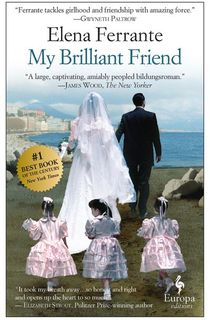
My Brilliant Friend
Now an HBO series, Elena Ferrante’s “enduring masterpiece” (The Atlantic) about a lifelong friendship between two women from Naples kicks off in this beloved first volume, a bestseller named the #1 Best Book of the Century by the New York Times.
“An intoxicatingly furious portrait of enmeshed friends” (Entertainment Weekly), this book and the subsequent volumes in Ferrante’s Neapolitan Novels have been hailed as “spectacular” (NPR) and “captivating” (New Yorker) and have drawn countless readers into the lives of their unforgettable central characters.
Cool Books for Your Home Library
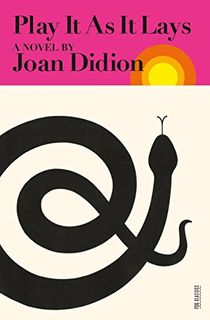
Play It As It Lays
Joan Didion’s second novel was hailed as “instant classic” by Vanity Fair and named one of Time magazine’s “100 Best English-Language Novels from 1923 to 2005.”
Adapted into the 1972 film of the same name starring Tuesday Weld and Anthony Perkins (of Psycho fame), Play It as It Lays is a “scathing” (Book World) depiction of the nihilism of Hollywood and America in the 1960s, a “book of outstanding literary quality” that is “simple, restrained, intelligent, well-structured, witty, irresistibly relentless, forthright in diction, and untainted by the sensational” (Library Journal).
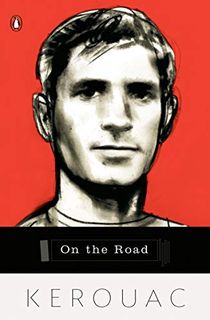
On the Road
Is there any book “cooler” than Jack Kerouac’s roman a clef of the Beat generation? The New York Times doesn’t think so, naming On the Road the “most beautifully executed, the clearest, and the most important utterance yet made” by the Beat generation, and declaring Kerouac its “principal avatar.”
If you’re unfamiliar with the counterculture work of Kerouac and his contemporaries, this is the perfect place to start. And if you just want a book that’s going to look and feel cool on the shelves of your home library, you can look no further than On the Road.

Inherent Vice
Even before it was adapted into a star-studded 2014 film by Paul Thomas Anderson, Thomas Pynchon’s postmodern detective novel was already considered one of the legendary author’s weirdest and yet most accessible works.
Known for dense novels like Gravity’s Rainbow, Pynchon is also famous for blending “high” and “low” culture and has been called a “mathematician of prose” (New Yorker). He brings all of these elements and more to the classic hardboiled detective story in Inherent Vice, where unforgettable characters meet (and often bungle) in an increasingly desperate investigation.

Slaughter-House Five
Hailed as “one of the most enduring anti-war novels of all time” (New York Times), Kurt Vonnegut’s semi-autobiographical, science fictional classic follows Billy Pilgrim, a soldier in World War II who is captured as a POW and becomes “unstuck in time,” experiencing his life in sequences out of chronology, including his own eventual death.
A classic of postmodernism, a war novel, a darkly comic satire, a fictionalized memoir, an account of the firebombing of Dresden, and so much more, Slaughterhouse-Five truly is a book like no other.

The Amazing Adventures of Kavalier & Clay
Winner of the Pulitzer Prize for Fiction, Michael Chabon’s bestseller about two Jewish cousins who become major figures in the Golden Age of the comic book industry was published to “nearly unanimous praise” (Contemporary Literary Criticism) and gave rise to everything from sequels to comic books adapted from those created by the title characters in the book.
Despite its doorstop size, The Amazing Adventures of Kavalier & Clay also helped to establish Chabon as a household name, and it remains a go-to title for those who’re looking to add a little comic book cool to their home library.
Banned Books for Your Home Library

Fahrenheit 451
A novel overtly about censorship – and specifically the burning of books – it is deeply ironic that Fahrenheit 451 is also one of the most frequently banned and challenged books in the world. In Apartheid South Africa, copies of Fahrenheit 451 were even burned, while in American classrooms and libraries the book has faced frequent challenges, with even its own publisher releasing a bowdlerized edition in the 1970s, which censored several words and changed numerous passages.
Despite this, unexpurgated versions of Fahrenheit 451 are still in print today, and it remains a “masterpiece” (The Boston Globe) about the dangers of censorship.
The Color Purple
Winning both the National Book Award and the Pulitzer Prize didn’t stop Alice Walker’s classic from joining the ranks of the American Library Association’s “100 Most Frequently Challenged Books.”
This story of black women in rural Georgia near the beginning of the 20th century has received frequent challenges due to its frank and often explicit language and depictions of the violence and sexuality that frequently define its characters’ lives. Despite this, it was also named one of the “best-loved novels” by the BBC and adapted to film by both Steven Spielberg and Blitz Bazawule.
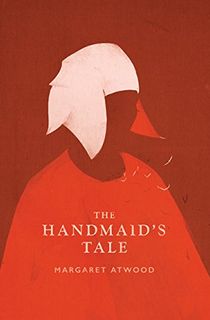
The Handmaid's Tale
Before the hit Hulu series, there was this “splendid” (Newsweek) and terrifying novel about a not-too-distant future in which a theocratic government took control of women’s lives, bodies, and reproduction.
Published in 1985, this searing indictment has only become more timely as the years have passed, which may be why it has also been repeatedly challenged, and why the Houston Chronicle urged readers to “Read it while it’s still allowed.”
Brave New World
By now, it’s no secret that novels depicting a dystopian future aren’t really predictions about times to come, but criticisms of times as they are – which also makes them ripe targets for banning and censorship. Such is the case with Aldous Huxley’s seminal Brave New World, which has rested perennially among the most challenged books since the American Library Association began keeping track in 1990.
This early dystopian novel of a society under totalitarian control has been banned in Ireland and India at various times, and Aldous Huxley himself called a “pornographer.”

Lolita
Few novels are more misunderstood by both their fans and their detractors than Vladimir Nabokov’s Lolita, a book so controversial that fears of censorship began before it was even published. This misunderstanding can also be found throughout the reception (and frequent challenging) of Nabokov’s story of Humbert Humbert, a “vain and cruel wretch” (Nabokov’s own words) who becomes obsessed with the “nymphet” (Humbert’s word) of the title when she is 12 years old.
Called “sheer unrestrained pornography” by the London Sunday Express, Lolita has been banned and challenged throughout its publication history, and is still subject to challenges and online dust-ups to this day.

